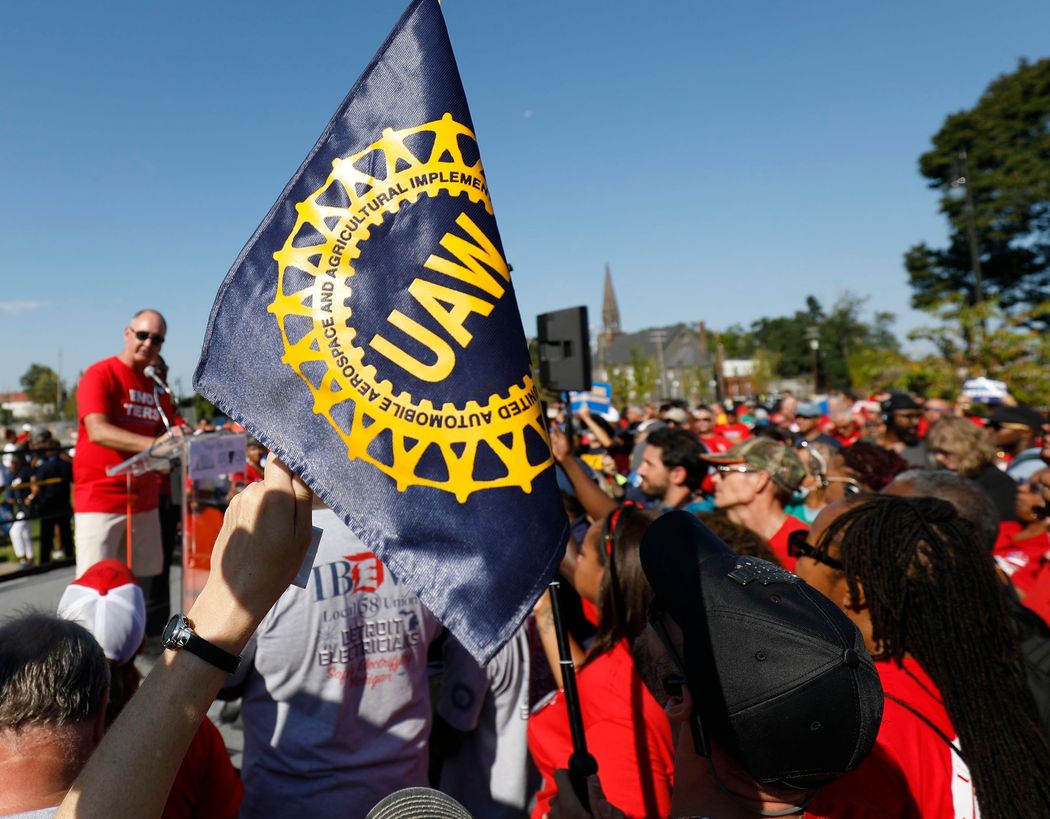Jacqueline Rayfield is a student at Harvard Law School.
In today’s News and Commentary, United Auto Workers gear up for a strike after their contract expires with Detroit Three automakers Thursday evening, marking the first ever simultaneous labor stoppage at all three firms and one of the largest U.S. industrial labor actions in recent history.
Ford, General Motors, and Stellantis (Detroit Three) are nearing the deadline for negotiations at 11:59pm on Thursday, when UAW workers plan to begin a stand-up strike. This would mark the largest strike activity by active union employees in the U.S. in 25 years. So far, none of the Detroit three have come close to offering UAW’s proposed 46% pay raise over four years. Stellantis has offered a 14.5% increase, and Ford and GM have offered 10%. These offers come after automakers pulled in $21 billion in profit the first six months of this year alone. UAW leaders have called automakers’ offers “disappointing” and demand a higher share of the firms’ profits. The union’s demands also include restoring pensions, a 32-hour work week, job security, and an end to use of temporary workers.
The UAW has announced that they will initially target only specific plants for work stoppages but could include others or change plans entirely before the Thursday deadline. Focusing strikes on a few strategic plants could help the UAW to extend their $825 million strike fund to put more pressure on automakers.
The potential for strike has drummed up attention from politicians. Nancy Pelosi said automakers now “have the means and the opportunity to invest in their workers.” Bernie Sanders wrote in an opinion piece that “all of us should support the strikers,” if UAW choses to strike Thursday night. However, President Biden on Labor Day remained optimistic that a strike would happen. UAW leadership has pushed back explaining that “it’s time for politicians in this country to pick a side.” While most other major labor unions have endorsed Biden’s reelection bid, the UAW remains a hold out.






Daily News & Commentary
Start your day with our roundup of the latest labor developments. See all
February 16
BLS releases jobs data; ILO hosts conference on child labor.
February 15
The Office of Personnel Management directs federal agencies to terminate their collective bargaining agreements, and Indian farmworkers engage in a one-day strike to protest a trade deal with the United States.
February 13
Sex workers in Nevada fight to become the nation’s first to unionize; industry groups push NLRB to establish a more business-friendly test for independent contractor status; and UFCW launches an anti-AI price setting in grocery store campaign.
February 12
Teamsters sue UPS over buyout program; flight attendants and pilots call for leadership change at American Airlines; and Argentina considers major labor reforms despite forceful opposition.
February 11
Hollywood begins negotiations for a new labor agreement with writers and actors; the EEOC launches an investigation into Nike’s DEI programs and potential discrimination against white workers; and Mayor Mamdani circulates a memo regarding the city’s Economic Development Corporation.
February 10
San Francisco teachers walk out; NLRB reverses course on SpaceX; NYC nurses secure tentative agreements.